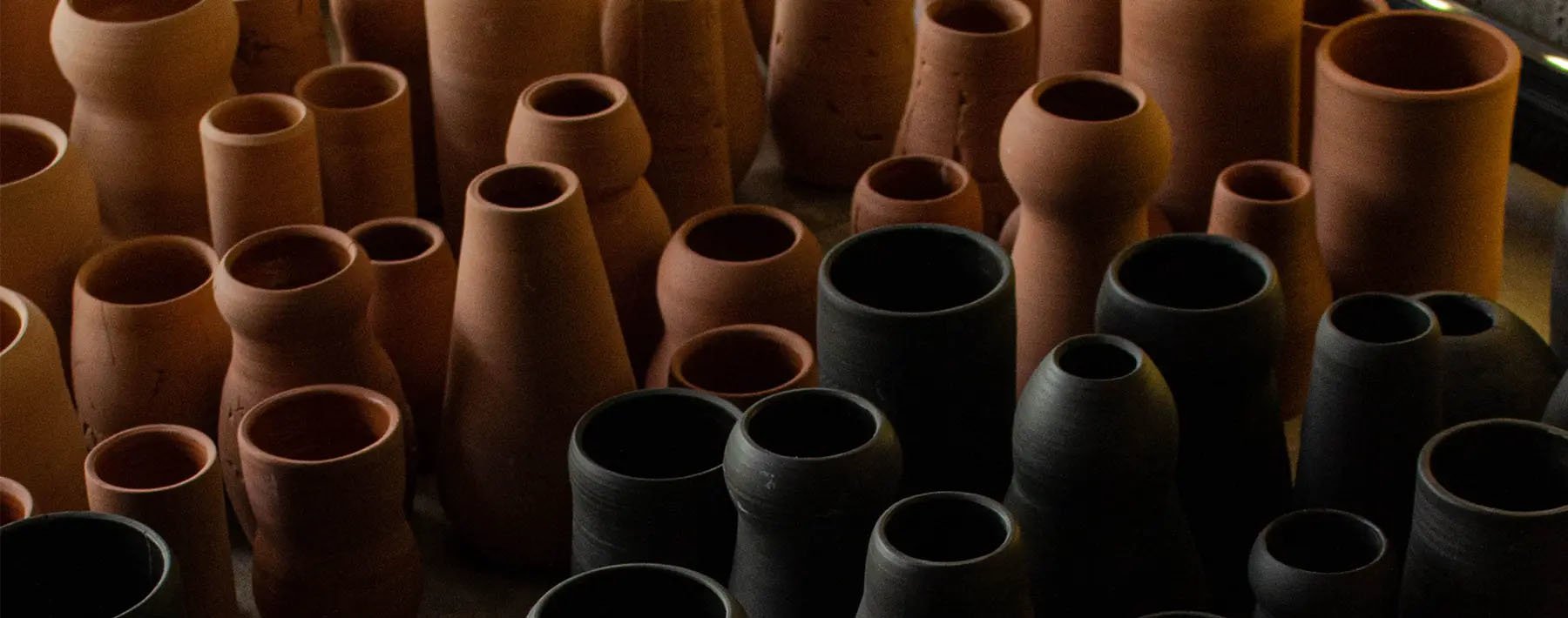
Goals + Targets
At Powered by People, we look at sustainability across three areas: Social, Environmental and Goverance. As a platform, we work with makers to access where they are at, and help to guide them across an ESG maturity scale. Our approach is progressive and transparent. Here are our key areas of focus, goals and targets.

Stewardship
We believe that sustainability is about nurturing our natural and social endowments in life-sustaining ways. Our platform enables us to promote makers that personify stewardship and responsibility.

Community
We live this by creating a community of conscious buyers, makers, consumers and other partners who share the principles of sustainable business that restores as it creates.

Social
The creative manufacturing sector is the second largest employer in the world behind agriculture. We take seriously the rights of this workforce as it pertains to wages, equality, health and wellbeing.

Environmental
Respect for our natural environment, including resources, green gas emissions, and materials are considered in our readiness assessment, as well as the responsible handling of substances and reduction of waste.

Governance
How businesses are structured including standards and compliance are considered to support accountability and enable responsible business conduct, transparency and moving toward greater supply chain traceability.
Social
Worker Rights
Human and labor rights are a matter of basic human dignity. Work can only be empowering and life-affirming if it is underpinned by the rights set out in the UN Universal Declaration of Human Rights and the ILO Declaration on Fundamental Principles and Rights at Work. We also align with the UN Guiding Principles on Business and Human Rights (pdf), the OECD Guidelines for Multinational Enterprises and the ILO Tripartite Declaration of Principles concerning Multinational Enterprises and Social Policy.
Our goal in 2023 is to ensure that 50% of the makers on our platform have been assessed for their readiness and ability to respect human and labor rights. We expect all makers to have integrated the necessary policies, procedures, training, documentation and reporting within 12 months of completing their readiness assessment.
Our goal for 2023 is for 50% of makers on our platform to set a living income or living wage ambition and a five year road map to achieve it.
Our goal in 2023 is for 50% of makers to be assessed on their readiness and ability to ensure a safe and healthy workplace (pdf). We expect all makers to have integrated the necessary systems within 12 months of completing their readiness assessment.
Our goal in 2023 is for 50% of makers to be assessed on their readiness and ability to prevent discrimination. We expect all makers to have integrated the necessary policies, procedures, training, documentation and reporting within 12 months of completing their readiness assessment.
Our goal in 2023 is for 50% of makers to be assessed on their readiness and ability to manage homeworkers in a manner that provides the necessary protections in terms of contract status, hours, pay, health and safety, work-life balance, avoidance of child labor, voice, access to training and social security benefits. We expect all makers to have integrated the necessary policies, procedures, training, documentation and reporting within 12 months of completing their readiness assessment.
Resources:
Read PBP Charter
Human and labor rights are a matter of basic human dignity.




Environment
Greenhouse Gas Emissions
Our common future depends on drastic reductions in greenhouse gases (GHGs). For makers a big part of this effort involves switching to renewable sources of energy and materials with a lower carbon footprint.
Our goal in 2023 is to ensure that 50% of the makers on our platform have been assessed for their readiness and ability to identify and reduce the main sources of GHGs in their own operations and those of their supply chain. We expect all makers to have integrated the necessary GHG reduction systems within 12 months of completing their readiness assessment.
Resource-efficiency
Reducing the amount of resource input for each unit of output is an effective way to reduce environmental impact and cost at the same time. Programs to reduce, reuse or recycle inputs, and circular production methods, are critical in this regard.
Our goal in 2023 is for 50% of makers to be assessed on their readiness and ability to increase resource efficiency. We expect all makers to systematically review the options for increased resource efficiency and to take appropriate decisions regarding business partners and suppliers, materials and other production resources with a view to reducing their social and environmental impact within 12 months of joining the platform.
Water
Water is one of the most critical natural resources and we have a responsibility to use it in ways that are equitable, socially and environmentally sustainable and economically viable.
Our goal in 2023 is for 50% of makers to be assessed on their readiness and ability to sustainably manage their water consumption while protecting water quality and availability. We expect all makers to have integrated the necessary systems within 12 months of completing their readiness assessment.
Waste
Waste (pdf) is an issue that negatively impacts climate change, nature, communities and biodiversity. Makers represent a waste reduction strategy in and of themselves because they often collect, repurpose, recycle and upcycle waste. In so doing they reduce the GHG emissions from waste, protect ecosystems and limit the adverse impacts on society and the environment.
Our goal in 2023 is for 50% of makers to be assessed on their readiness and ability to sustainably manage their waste. We expect all makers to have integrated the necessary systems within 12 months of completing their readiness assessment.
Reduction in greenhouse gases, steps toward circularity, responsible water and waste disposal are key to our common future”.

Resources:
Restricted Substances
Restricted Materials


Resources

Water

Waste

Informed choices across the supply chain require data collection and traceability of purchased goods and services.
Governance
Responsible Business Conduct
Responsible business conduct requires that businesses conduct due diligence to identify the risks that they face, and those that they pose to society and the environment. They should then take appropriate steps to prevent or mitigate those risks in order to avoid adverse impacts, especially by making informed choices about business partners and suppliers, materials and methods of production.
Our goal in 2023 is for 50% of makers to be assessed on their readiness and ability to conduct due diligence. We expect all makers to have integrated the necessary systems to collect data on ESG risks and take appropriate decisions to prevent them, within 12 months of completing their readiness assessment.
Our goal in 2023 is for 50% of makers to be assessed on their readiness and ability to trace all their business partners, suppliers and production inputs, and make it transparent to relevant stakeholders. We expect all makers to have integrated the necessary systems to collect and share this data within 12 months of completing their readiness assessment.
Resources:
Learn about how we rate our makers
Informed choices across the supply chain require data collection and traceability of purchased goods and services.




